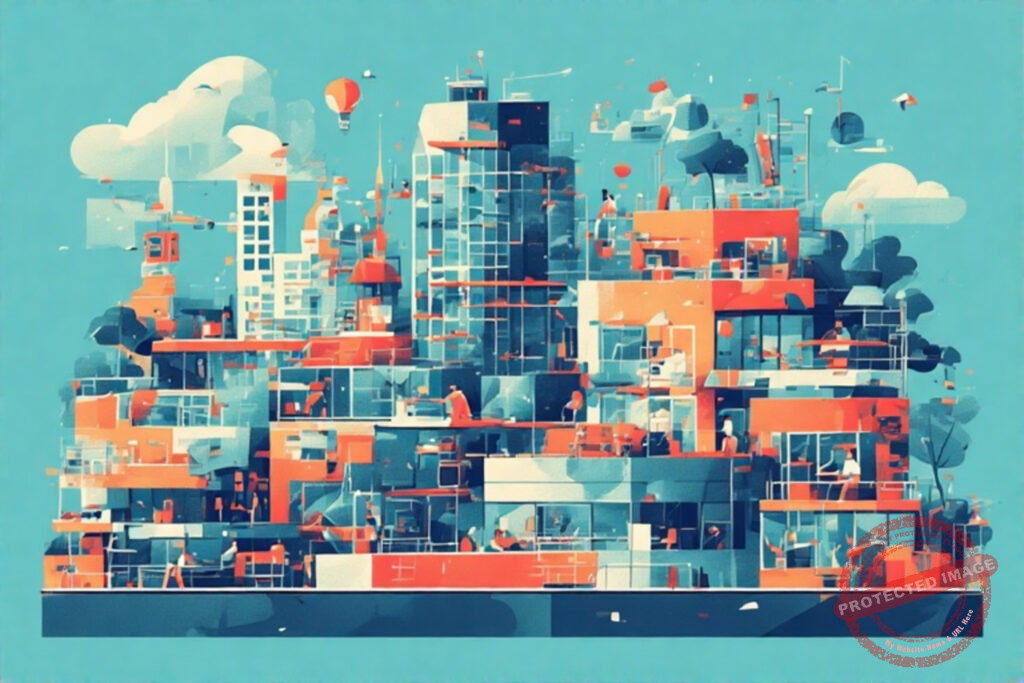
During our recent trip to China, we got the impression that many Chinese are frustrated with their lives, bored with their jobs, and feeling a lack of hope about the future. This is not dissimilar to Americans, who seek to drown their boredom and frustration with television, alcohol, and other mindless pursuits. Today’s blog post will investigate the differences and similarities of this modern life malaise within these two cultures today.
A Global Phenomenon
The frustrations we observed in China—boredom, hopelessness, and escapism—mirror those in America, revealing a shared modern life malaise. In both nations, people grind through unfulfilling jobs, numb themselves with digital distractions, and question whether hard work still pays off. Yet while the symptoms look similar, the cultural responses diverge sharply.
Workplace Woes
In China, the modern life malaise manifests in “996” work culture (9am–9pm, six days a week), where young professionals exhaust themselves for stagnant wages. Similarly, Americans face “quiet quitting” and gig-economy precarity. Both groups feel trapped in systems that demand more while offering diminishing returns. The alienation is universal, but the framing differs: Chinese state media promotes the “Chinese Dream,” while Americans openly lament the death of upward mobility.
Escapism’s Many Faces
To cope with this modern life malaise, Chinese youth binge on Douyin (TikTok) and mobile games like Honor of Kings, while Americans drown in streaming services and opioids, alcohol, and marijuana. The tools vary, but the impulse is the same—distraction from a future that feels increasingly out of reach. In China, group activities like KTV singing rooms provide collective relief; in the U.S., self-destruction is often a solitary pursuit.
Youth in Revolt (Sort Of)
The modern life malaise has spawned generational pushback. Chinese youth embrace “lying flat” (rejecting societal pressure) or dark humor like “let it rot.” Americans flock to anti-work forums and doomer memes. Both groups sense the game is rigged, but Chinese dissent is veiled in irony, while U.S. disillusionment is loud and explicit.
The Hope Gap
Here’s where the modern life malaise splits along cultural lines. In China, the government amplifies narratives of national progress, but young people see little personal payoff. In America, pessimism is mainstream—yet the lack of collective solutions leaves individuals adrift. Both systems are struggling to answer the same question: How do we make life meaningful again?
Conclusion: A Crisis of Meaning
Whether in Shanghai or Chicago, the modern life malaise reflects a deeper crisis—one that economics alone can’t fix. The next chapter will hinge on which society finds a way to restore purpose. For now, the struggle is silent in China, noisy in America, but equally real in both.
About Raleigh Acupuncture
At Raleigh Acupuncture Associates, we are deeply committed to providing the highest quality professional acupuncture while being rooted in strong Judeo-Christian values of love, faith, kindness, and truth. We guide our practice with compassionate care, where each patient is treated with respect and dignity, regardless of their background, faith, or beliefs. We welcome people from all walks of life and strive to create a warm, inclusive environment promoting healing and holistic wellness. Our dedication to delivering exceptional acupuncture is paired with a genuine love for helping others, making our clinic a place where faith and professional medical care come together for the well-being of every patient.
Next Steps
BOOK NOW to schedule an appointment online.
Meet Our Practitioners (Video).
Learn about all the conditions we treat.
Focus Keyphrase: Modern Life Malaise
Image generated with https://perchance.org/ai-text-to-image-generator





Leave a Reply